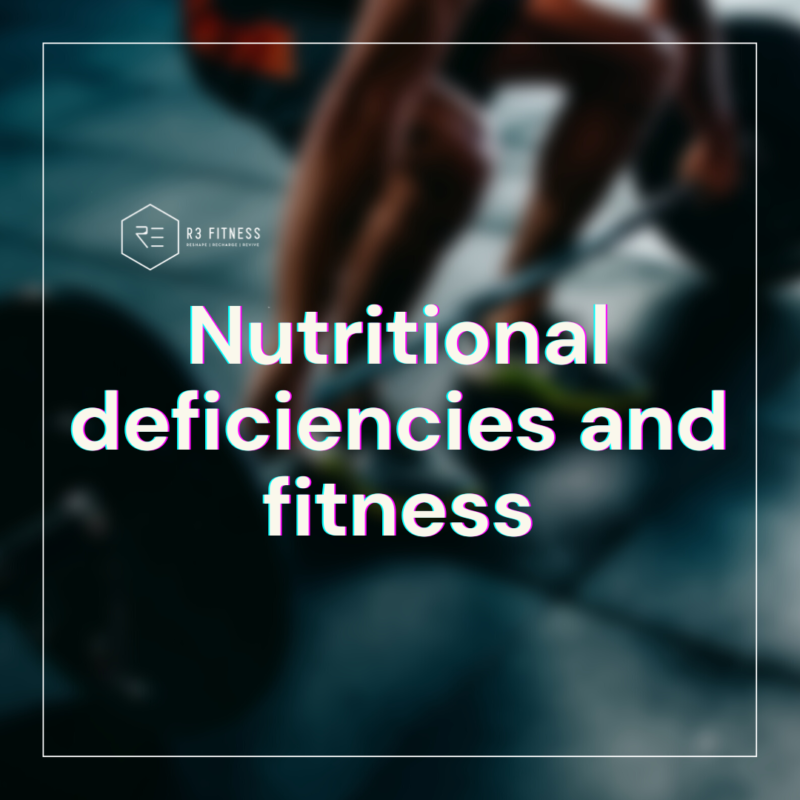Knowledge about workouts and nutritions, Tips for food intake
Nutritional Deficiencies and Fitness
Nutritional deficiencies can have a significant impact on fitness and athletic performance. Here are some key points about the relationship between nutritional deficiencies and fitness:
- Macronutrient deficiencies
- Micronutrient deficiencies
- Hydration
- Individualization
- Supplementation
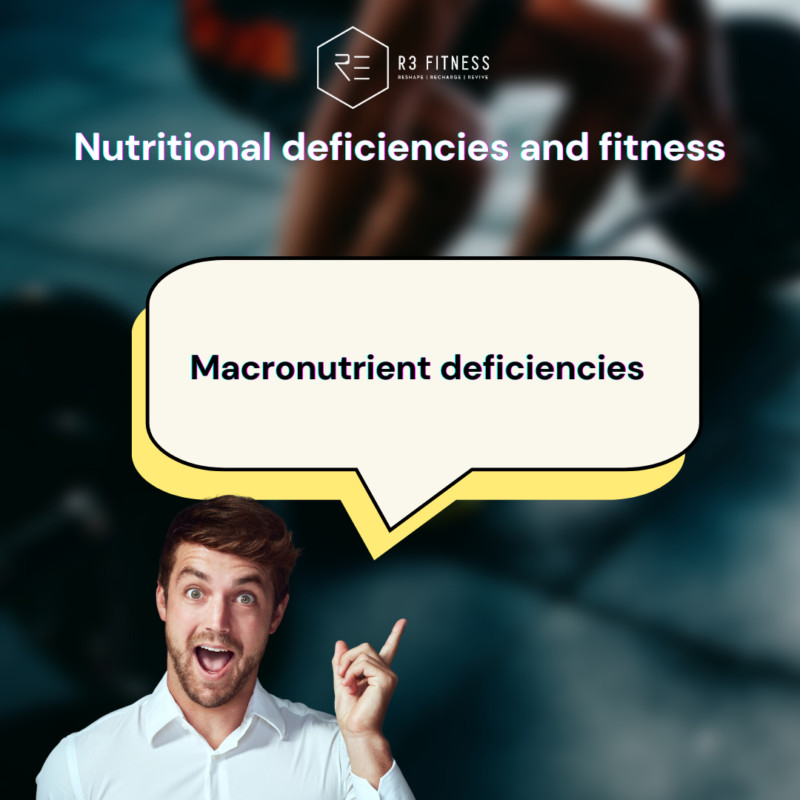
Macronutrient deficiencies
Inadequate intake of carbohydrates, proteins, and fats can impact energy levels, impair muscle growth and repair, and reduce endurance. Athletes should aim to consume a balanced diet that provides sufficient amounts of each macronutrient.
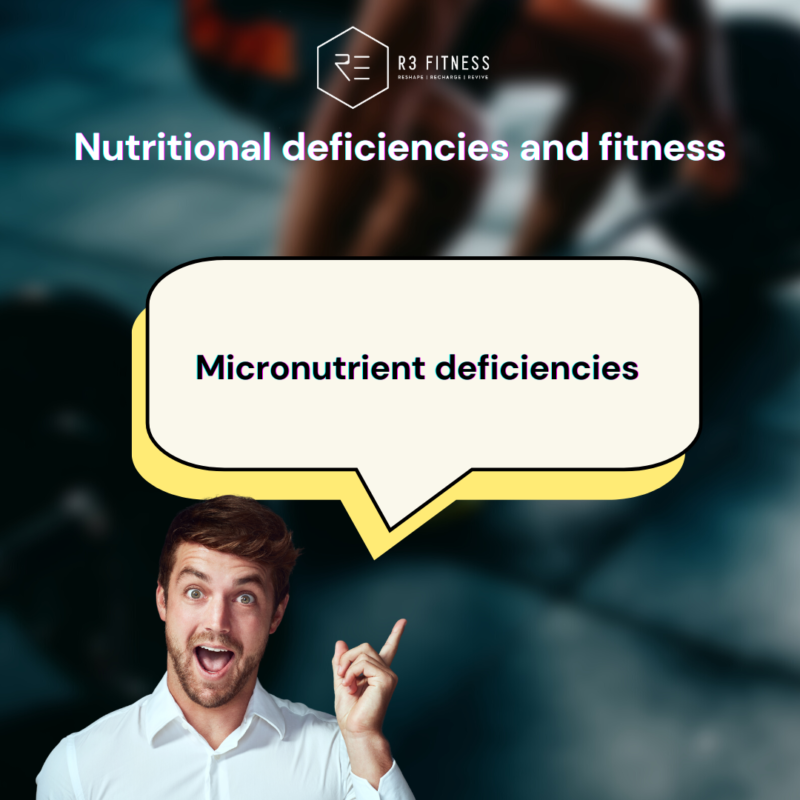
Micronutrient deficiencies
Inadequate intake of vitamins and minerals can also impact athletic performance. Deficiencies in iron, calcium, and vitamin D are particularly common among athletes and can impact energy levels, bone health, and overall performance.
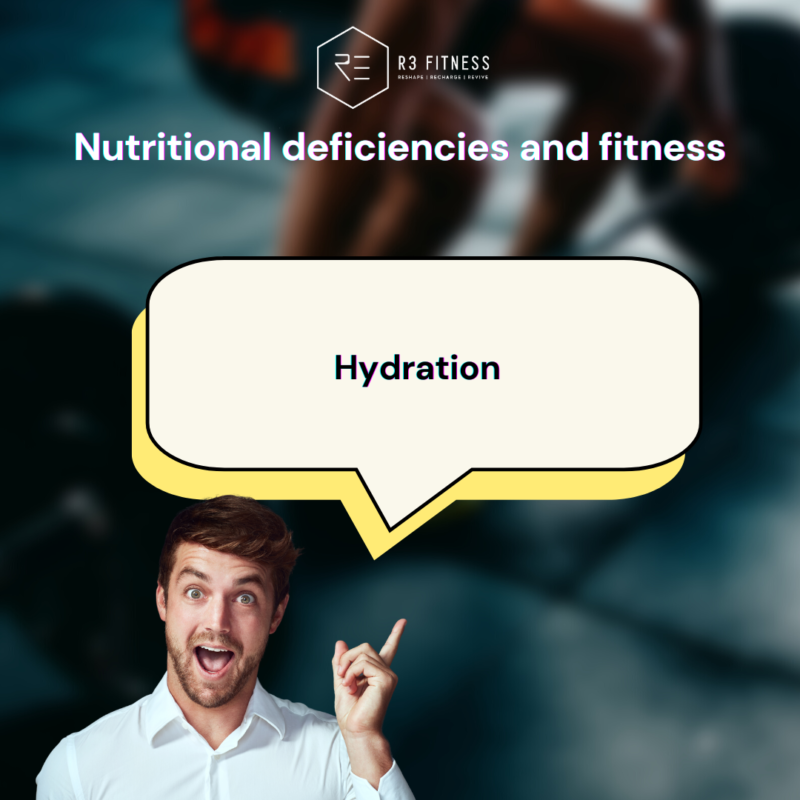
Hydration
Inadequate fluid intake can lead to dehydration, which can impact athletic performance and increase the risk of injury. Athletes should aim to consume fluids regularly throughout the day and be mindful of their fluid intake during and after exercise.
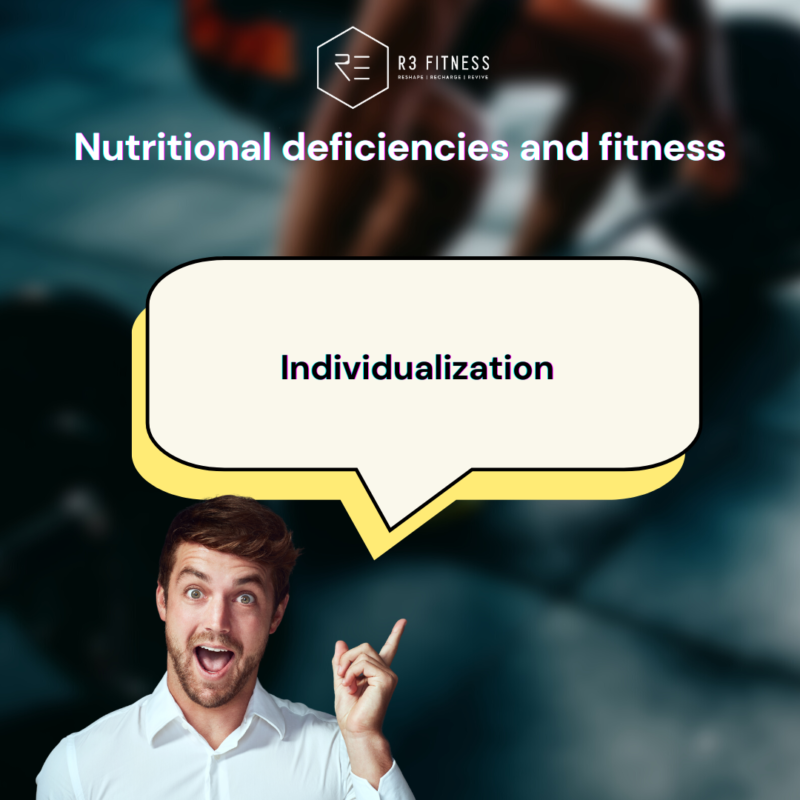
Individualization
Nutritional needs can vary widely among athletes based on factors such as age, gender, sport, and training goals. It’s important for athletes to work with a registered dietitian or sports nutritionist to identify potential deficiencies and develop an individualized plan to address them.
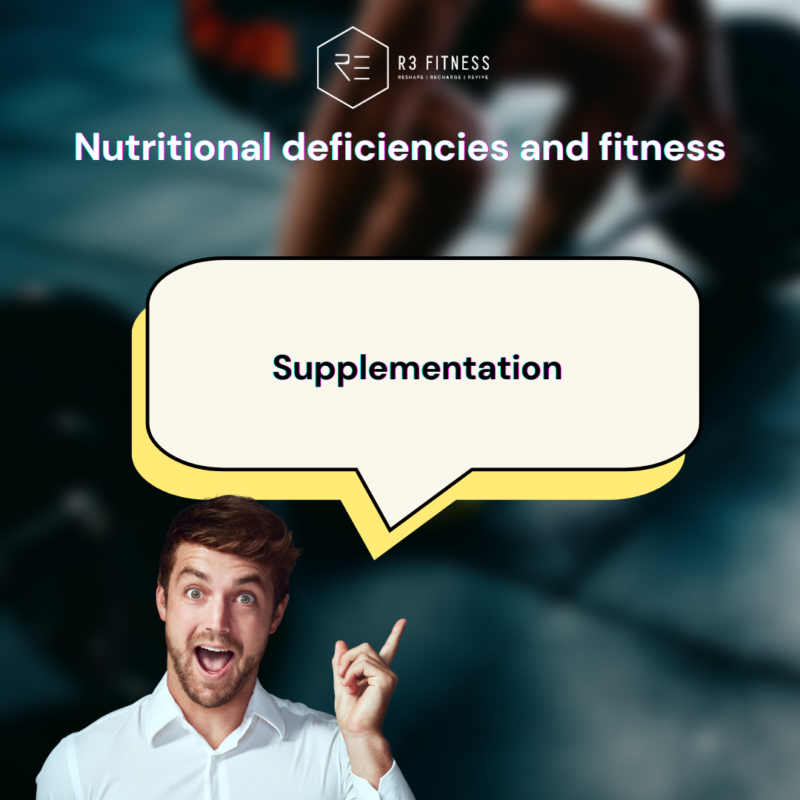
Supplementation
In some cases, supplementation may be necessary to address nutritional deficiencies. Athletes should work with a healthcare provider or sports nutritionist to determine which supplements, if any, may be beneficial for their individual needs.
Overall, proper nutrition is essential for optimizing athletic performance and promoting overall health and wellbeing. By consuming a balanced diet that provides sufficient amounts of macronutrients and micronutrients, staying hydrated, and addressing potential nutritional deficiencies, athletes can support their fitness goals and achieve optimal health and performance.

